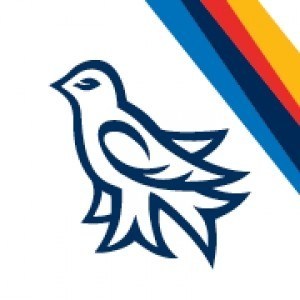Photos of university / #umanitoba
The Bachelor of Science in Mathematics and Economics at the University of Manitoba offers students an exceptional opportunity to develop a strong foundation in quantitative analysis, economic theory, and mathematical reasoning. This interdisciplinary program is designed to prepare students for advanced studies or diverse career paths in fields such as finance, data analysis, public policy, consulting, and academia. Throughout the program, students will engage with core courses in calculus, linear algebra, probability, and statistics, alongside fundamental and advanced economic theory, microeconomics, macroeconomics, and econometrics. The curriculum aims to foster critical thinking, problem-solving skills, and analytical abilities essential for understanding complex economic systems and mathematical models. Students will benefit from a blend of theoretical coursework and practical applications, including computer-based modeling, research projects, and case studies. The program also emphasizes the development of communication skills, enabling graduates to clearly articulate complex concepts to diverse audiences. With access to comprehensive resources, experienced faculty members, and opportunities for research and internships, students are well-equipped to pursue careers in public administration, financial services, consulting firms, or continue on to graduate studies in economics, mathematics, or related disciplines. The interdisciplinary approach of the program ensures graduates possess a versatile skill set, making them highly competitive in the evolving job market. Whether students are interested in theoretical research or applied economic analysis, the Bachelor of Science in Mathematics and Economics provides a rigorous and rewarding academic environment to achieve their goals.
The Mathematics and Economics program at the University of Manitoba offers students a comprehensive interdisciplinary education that combines rigorous mathematical training with a thorough understanding of economic theories and principles. Designed for students interested in quantitative analysis, analytical problem-solving, and economic modeling, this program provides the foundational knowledge necessary for careers in research, public policy, finance, and academia. The curriculum covers core areas such as calculus, linear algebra, probability, and statistics, alongside microeconomics, macroeconomics, and economic theory. Students will learn to apply mathematical techniques to analyze economic phenomena, develop models, and interpret data effectively. The program emphasizes both theoretical understanding and practical skills, with numerous opportunities for hands-on experience through projects, case studies, and research seminars. Additionally, students can tailor their studies with elective courses in areas like financial mathematics, game theory, econometrics, and operations research. The university's faculty comprises experienced scholars and industry professionals committed to providing mentorship and fostering critical thinking. Graduates of the program will be well-equipped to pursue advanced degrees or enter the workforce as data analysts, economic consultants, financial analysts, or policymakers. The program’s structure is designed to prepare students for the complexities of modern economic challenges with a solid foundation in quantitative analysis, economic reasoning, and mathematical modeling, ensuring they are competitive in a variety of professional environments.
Program requirements for the Bachelor of Science in Mathematics and Economics at the University of Manitoba include a combination of core courses, electives, and additional requirements designed to provide students with a comprehensive understanding of both disciplines. Students must complete a minimum of 120 credit hours to graduate, which typically spans over eight semesters. The core curriculum includes foundational courses such as Calculus I, II, and III, Linear Algebra, and Foundations of Mathematics, which establish essential mathematical skills. In addition to these, students are required to take introductory courses in Microeconomics and Macroeconomics, as well as intermediate-level courses in Economic Theory, Mathematics for Economists, and Statistical Methods for Economics.
To ensure depth of knowledge, students must select specialized electives within both fields. For the Mathematics component, options include Differential Equations, Real Analysis, Discrete Mathematics, and Computational Mathematics. Within Economics, electives might involve International Economics, Development Economics, Public Economics, and Econometrics. A capstone project or thesis is generally required to apply theoretical understanding to real-world problems, fostering research skills and critical analysis. Students are also encouraged to undertake internships or cooperative education placements to gain practical experience.
Students must maintain a minimum GPA of 2.0 in core courses and an overall GPA of 2.0 to remain in good academic standing. Transfer credits from other accredited institutions may be accepted towards elective requirements, subject to departmental approval. The program also emphasizes the development of quantitative and analytical skills, critical thinking, and effective communication. Language proficiency requirements for international students may include testing such as TOEFL or IELTS, with minimum scores specified by the university.
Completion of the program enables graduates to pursue careers in finance, government, research, or continue their studies in graduate or professional schools. The curriculum is designed to be flexible, allowing students to tailor their course choices to align with their career aspirations while providing a solid foundation in both Mathematics and Economics.
Want to improve your English level for admission?
Prepare for the program requirements with English Online by the British Council.
- ✔️ Flexible study schedule
- ✔️ Experienced teachers
- ✔️ Certificate upon completion
📘 Recommended for students with an IELTS level of 6.0 or below.
The University of Manitoba offers various financial support options for students enrolled in the Mathematics and Economics programs. Students can access a range of scholarships, bursaries, and awards based on academic achievement, financial need, and other criteria. Entrance scholarships are available for outstanding students entering the university, which may include renewable awards for continued excellence. The university also provides departmental awards specifically for students specializing in Mathematics and Economics to recognize academic achievement and research potential. Additionally, students can apply for financial assistance through government-sponsored loans and grants, such as the Canada Student Loans Program and provincial funding options, which are designed to help cover tuition fees and living expenses. Work-study programs are available to enable students to earn income while gaining work experience related to their field of study. The university's financial aid office offers counseling services to help students explore funding opportunities and manage their finances effectively. International students are encouraged to seek external scholarships and sponsorships available from organizations and government agencies in their home countries, as well as those offered by the university for international students. Students are advised to regularly check the university’s official website for updates on application procedures, deadlines, and eligibility criteria for various financial aid programs. The university emphasizes the importance of early planning and application to maximize the chances of securing financial assistance. Overall, the University of Manitoba provides comprehensive support to ensure that students pursuing studies in Mathematics and Economics have access to the necessary funds to complete their education without undue financial hardship.
The Mathematics and Economics undergraduate program at the University of Manitoba offers students a comprehensive education that combines rigorous training in mathematical techniques with a deep understanding of economic theory and application. The program aims to develop analytical and problem-solving skills, preparing graduates for careers in various sectors including finance, government, academia, and private industry. The curriculum includes courses in calculus, linear algebra, differential equations, and statistical methods, alongside foundational and advanced economic theory, microeconomics, macroeconomics, and econometrics. Students have opportunities to engage in research projects, internships, and seminars that enhance practical knowledge and professional development. The program's structure typically allows for specialization or minors in related fields such as finance, data analysis, or business. The faculty comprises experienced instructors and researchers dedicated to mentoring students and advancing their academic pursuits. Facilities include modern classrooms, computer labs equipped with statistical and mathematical software, and access to extensive academic resources. Graduates of the program are well-equipped to pursue graduate studies or enter the workforce with a strong quantitative and analytical skill set. The University of Manitoba provides support services such as academic advising, career workshops, and networking events to help students achieve their academic and professional goals. Overall, the Mathematics and Economics program is designed to cultivate critical thinking, quantitative analysis, and economic literacy, enabling students to analyze complex problems and contribute effectively to their chosen fields.




